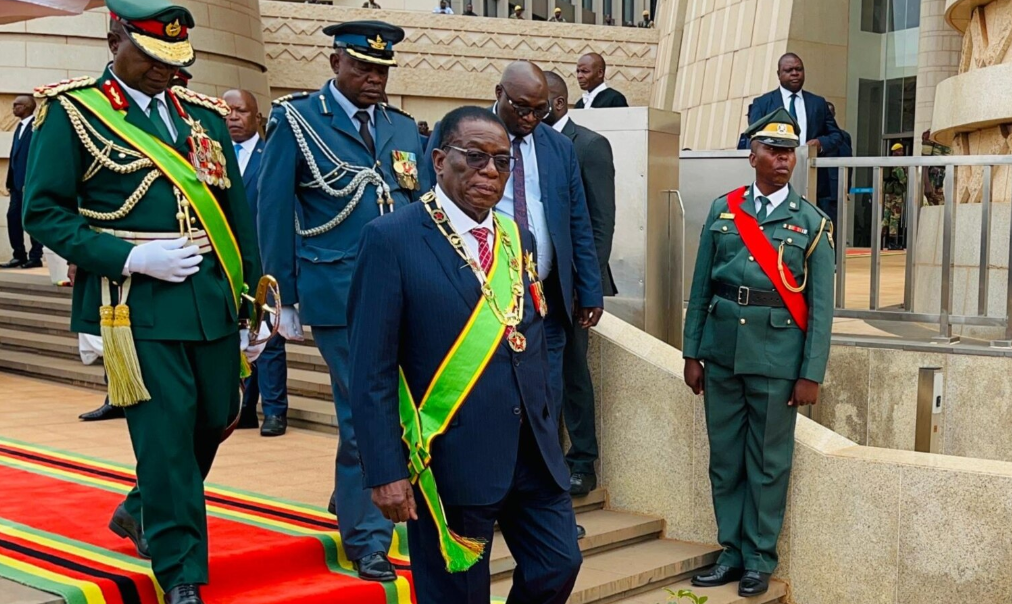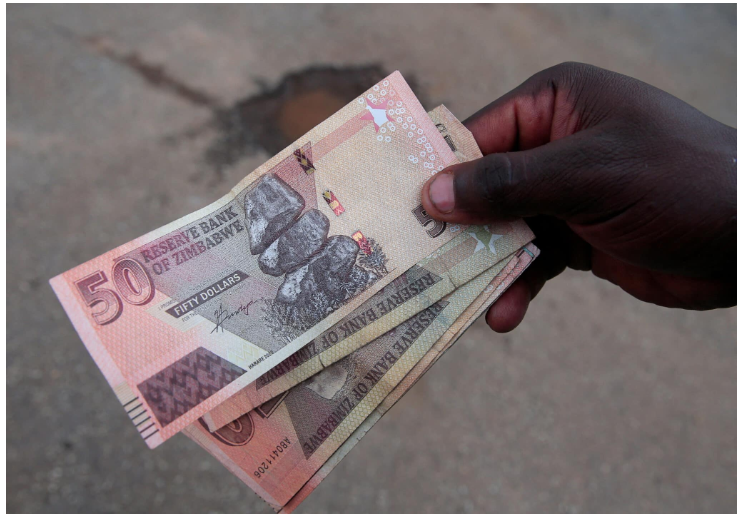 Harare, Zimbabwe Zimbabwe’s President, Emmerson Mnangagwa, has promised to take decisive measures to halt the ongoing depreciation of the Zimbabwean dollar, which has been plaguing the nation’s economy and causing widespread concern among businesses and citizens. In a recent address, Mnangagwa assured the public that his government would introduce comprehensive policies aimed at stabilizing the currency and curbing inflation.
Harare, Zimbabwe Zimbabwe’s President, Emmerson Mnangagwa, has promised to take decisive measures to halt the ongoing depreciation of the Zimbabwean dollar, which has been plaguing the nation’s economy and causing widespread concern among businesses and citizens. In a recent address, Mnangagwa assured the public that his government would introduce comprehensive policies aimed at stabilizing the currency and curbing inflation.
The Zimbabwean dollar has seen a dramatic fall in value, with inflation rates soaring, leading to rising prices of goods and services. This currency instability has sparked fears of a return to the hyperinflation crisis that crippled the country’s economy in the late 2000s. To counter this, President Mnangagwa outlined a series of measures designed to restore confidence in the local currency and improve economic conditions.
President Mnangagwa emphasized that his government is committed to strengthening the country’s monetary policy framework and addressing some of the structural issues that have contributed to the currency’s decline. Among the key actions proposed are:
Tightening Monetary Policy The government plans to limit money supply by closely monitoring liquidity in the financial sector. This measure aims to prevent further devaluation of the Zimbabwean dollar and ensure better control over inflation.
Boosting Forex Reserves Mnangagwa highlighted the need to increase foreign currency reserves to support the local currency. He encouraged businesses to focus on exports and leverage foreign direct investment to increase the flow of hard currency into the economy.
Reducing Deficit SpendingThe president acknowledged that government spending has contributed to inflationary pressures. He pledged to reduce the fiscal deficit by improving revenue collection and curbing unnecessary expenditures.
 Engagement with the Private Sector To restore trust in the local currency, Mnangagwa indicated plans to work more closely with private businesses, particularly in the mining and agricultural sectors, to enhance productivity and export growth.
Engagement with the Private Sector To restore trust in the local currency, Mnangagwa indicated plans to work more closely with private businesses, particularly in the mining and agricultural sectors, to enhance productivity and export growth.
While the government has outlined these measures, many Zimbabweans remain skeptical about the effectiveness of the proposals. The current economic conditions have led to widespread discontent, with some questioning the government’s ability to execute its policies given the long-standing challenges of corruption, economic mismanagement, and political instability.
Businesses have been particularly hard hit by the currency’s rapid depreciation, leading many to adopt the US dollar for transactions. This has increased the dual-currency system in the country, where the local dollar and US dollar are used interchangeably, further complicating economic management.
An economist in Harare commented, The president’s intentions are clear, but the success of these policies depends on the government’s ability to enforce fiscal discipline and maintain monetary stability.

